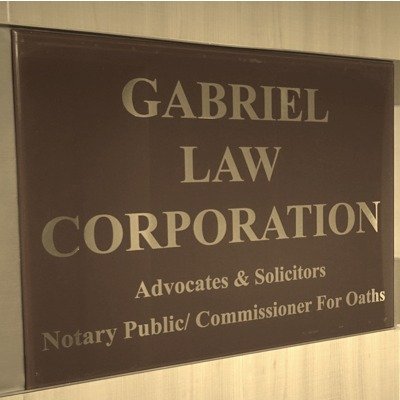Best Project Finance Lawyers in Raffles Place
Share your needs with us, get contacted by law firms.
Free. Takes 2 min.
List of the best lawyers in Raffles Place, Singapore
About Project Finance Law in Raffles Place, Singapore
Project finance in Raffles Place, Singapore involves structuring funding solutions for large-scale projects such as infrastructure, energy, transportation, and real estate developments. Often driven by considerable capital investment and complex arrangements, project finance typically means that loans are repaid solely from the cash flow generated by the project. Parties involved regularly include private investors, government bodies, banks, and other lenders. Legal advice in this area helps ensure all aspects of the transaction are properly documented, risks are managed, and compliance with applicable Singaporean regulations is achieved.
Why You May Need a Lawyer
You might require a lawyer with expertise in project finance for several reasons. Common scenarios include:
- Assisting with the structuring and negotiation of financing transactions
- Drafting or reviewing lending documents, security agreements, or consortium agreements
- Ensuring compliance with Singapore's regulations and any cross-border legal issues
- Managing disputes between stakeholders or addressing defaults
- Dealing with environmental or regulatory approvals linked to the underlying project
- Undertaking due diligence for investments and credit checks
- Advising on tax implications and risk management strategies
Local Laws Overview
In Singapore, project finance is governed by a mix of statutory regulations, commercial laws, and common law principles. Factors particularly relevant in Raffles Place, Singapore, a major financial district, include:
- Banking and Financial Regulations: The Monetary Authority of Singapore (MAS) regulates the financial sector, including rules on lending and financial services.
- Security and Collateral: Local law allows various forms of security, such as fixed or floating charges, assignments, and mortgages to secure project finance agreements.
- Contract Law: The Contracts Act and related legal principles govern project agreements, syndicated loans, and joint ventures.
- Companies Act: Corporate structure, directors' responsibilities, and insolvency issues are all covered under the Companies Act.
- Land and Property Law: Land titles, leasehold arrangements, and real property securities are key elements for infrastructure projects.
- Environmental and Planning Approvals: Several statutory requirements may apply, particularly for large infrastructure or energy projects.
- Taxation: Tax structuring is critical when arranging project finance transactions, given Singapore's global reputation as a financial hub.
Frequently Asked Questions
What is project finance and how does it differ from regular corporate finance?
Project finance refers to a method of funding projects based on the projected cash flows of the project rather than the balance sheets of its sponsors. In contrast, corporate finance relies on the overall creditworthiness and assets of the company undertaking the project.
Which types of projects are usually financed through project finance in Raffles Place?
Typical projects include infrastructure (roads, ports, bridges), power plants, renewable energy installations, telecommunications, and significant real estate developments.
Why is legal advice critical for a project finance transaction?
The complexity and size of project finance deals demand legal expertise to navigate contract terms, regulatory compliance, risk allocation, and dispute resolution, minimizing risks for all parties involved.
What are typical forms of security used in Singaporean project finance?
Common forms of security include mortgages over land, fixed and floating charges over assets, assignments of project contracts, and pledges over receivables and shares.
How does the regulatory environment in Singapore influence project financing?
Singapore’s well-developed and transparent regulatory system, governed largely by MAS, fosters investor confidence and supports robust financing and dispute resolution mechanisms.
Do foreign investors face any restrictions in participating in project finance in Singapore?
Generally, Singapore welcomes foreign investment, but there may be specific restrictions in sectors such as telecommunications or utilities that necessitate adherence to ownership or licensing rules.
What is the role of due diligence in project finance?
Due diligence is a thorough investigation into the financial, legal, and technical aspects of the project to identify and manage potential risks before any financing is finalized.
Can project finance be used for cross-border projects based in Singapore?
Yes, Singapore’s legal and financial infrastructure makes it a preferred base for cross-border project finance transactions across Southeast Asia and beyond.
What happens if a project fails or defaults on its financing?
If a project fails or defaults, lenders may enforce security rights, such as appointing receivers, selling assets, or initiating legal action to recover outstanding amounts, depending on the terms of the financing documents.
How long do project finance transactions typically take to complete?
The timeline varies based on project size and complexity but can range from several months to over a year, particularly at the due diligence and negotiation stages.
Additional Resources
For further information, guidance, or support, the following governmental bodies and organizations in Singapore are commonly involved in project finance:
- Monetary Authority of Singapore (MAS)
- Singapore Economic Development Board (EDB)
- Singapore Land Authority (SLA)
- Singapore International Arbitration Centre (SIAC)
- Singapore Law Society
- Ministry of Law Singapore
These entities offer useful information, standardized forms, regulatory updates, and, in some cases, mediation or arbitration services related to project finance.
Next Steps
If you are considering embarking on or participating in a project finance deal in Raffles Place, Singapore, consider these steps:
- Consult an experienced project finance lawyer familiar with Singapore law and local market practices.
- Prepare all relevant documentation, including feasibility studies, proposed contracts, and financial models, for review.
- Seek early legal advice to identify and address potential risks or regulatory hurdles before investing significant resources.
- Engage with relevant authorities early in the process if your project requires regulatory, environmental, or planning approvals.
- Consider arranging a preliminary meeting with legal counsel to outline the scope, timeline, and requirements of your intended project.
Early and comprehensive legal input is often the key to a smoothly-implemented and successful project finance transaction in Singapore.
Lawzana helps you find the best lawyers and law firms in Raffles Place through a curated and pre-screened list of qualified legal professionals. Our platform offers rankings and detailed profiles of attorneys and law firms, allowing you to compare based on practice areas, including Project Finance, experience, and client feedback.
Each profile includes a description of the firm's areas of practice, client reviews, team members and partners, year of establishment, spoken languages, office locations, contact information, social media presence, and any published articles or resources. Most firms on our platform speak English and are experienced in both local and international legal matters.
Get a quote from top-rated law firms in Raffles Place, Singapore — quickly, securely, and without unnecessary hassle.
Disclaimer:
The information provided on this page is for general informational purposes only and does not constitute legal advice. While we strive to ensure the accuracy and relevance of the content, legal information may change over time, and interpretations of the law can vary. You should always consult with a qualified legal professional for advice specific to your situation.
We disclaim all liability for actions taken or not taken based on the content of this page. If you believe any information is incorrect or outdated, please contact us, and we will review and update it where appropriate.










